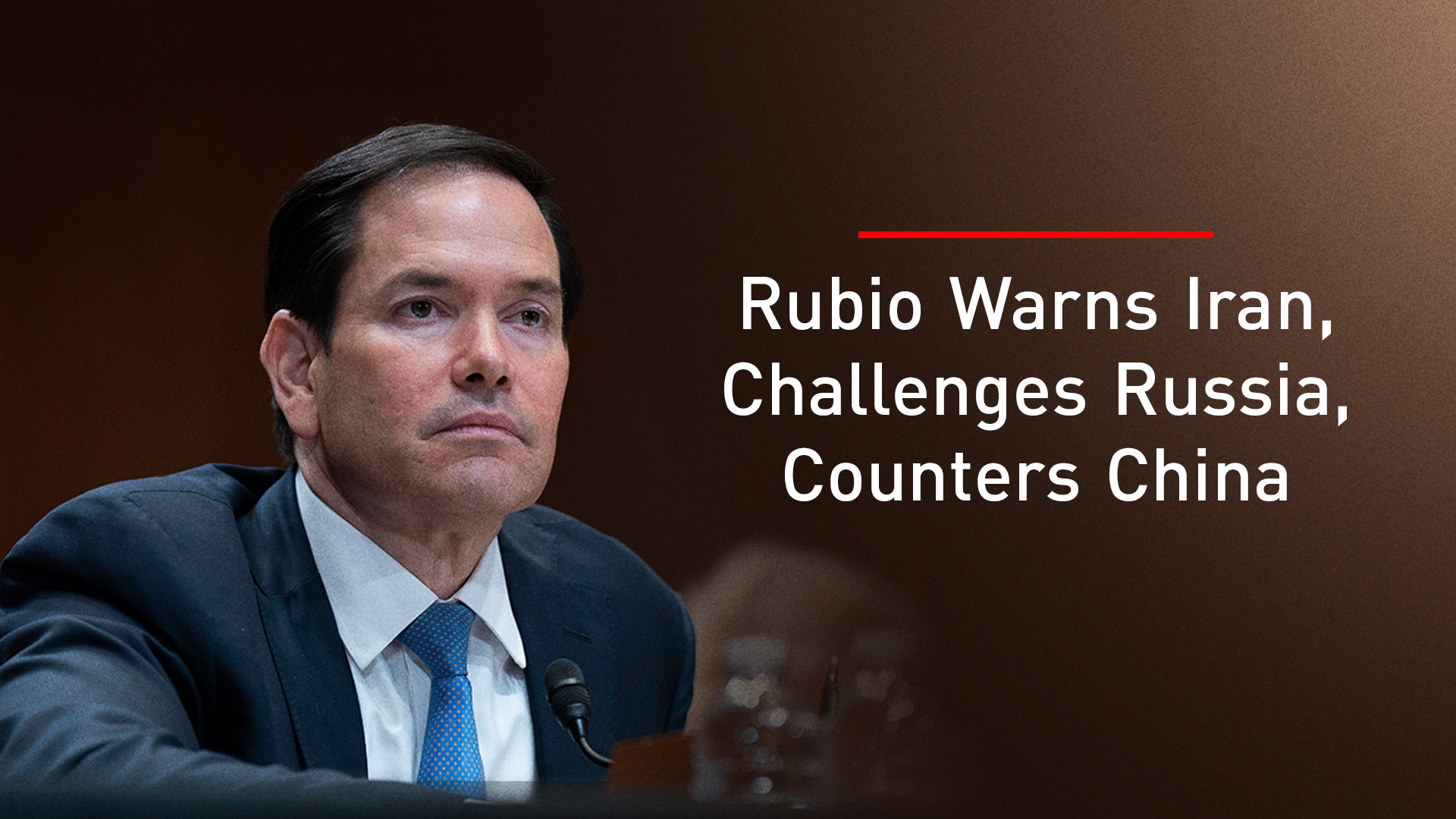Rubio: Iran Isolated, Russia on Deadline, China Rebalanced
"I think everyone, China, Russia, others, even North Korea, have become a little bit more cautious about supporting Iran, especially after our B-2s flew halfway around the world and conducted an operation and left before anyone found out about it," Rubio stated.

ERBIL (Kurdistan 24) – In an interview, U.S. Secretary of State Marco Rubio detailed the Trump administration's foreign policy strategy, outlining a firm stance against Iran, a clear path to ending the conflict with Hamas, and a deadline for Russia to find peace, while emphasizing President Donald J. Trump's role as the "ultimate closer" in international negotiations.
Speaking with Lara Trump on Fox News' "My View," Secretary Rubio asserted that a recent U.S. military operation has made nations like China, Russia, and North Korea more cautious in their support for Iran.
"I think everyone, China, Russia, others, even North Korea, have become a little bit more cautious about supporting Iran, especially after our B-2s flew halfway around the world and conducted an operation and left before anyone found out about it," Rubio stated. He explained that this action served as a powerful reminder of American military strength.
According to Rubio, during a recent conflict, when Iran sought assistance from its allies, "they all kind of took a pass and said, we don't want to get involved in this thing." He told Fox News this was because "President Trump reminded them" that the U.S. possesses "the most extraordinary military capabilities in the world."
The Secretary also noted China's economic relationship with Iran, stating that the Chinese "buy a lot of their sanctioned oil and have provided them some defense articles in the past."
On the issue of hostages held by Hamas, Rubio confirmed that all American hostages have been released. In the Fox News interview, he outlined what he described as a "very simple solution" to the conflict in Gaza.
"Release all the hostages, lay down your arms, and the war ends for Hamas," Rubio said. He praised the efforts of negotiator Steve Witkoff, who he said has been "working on that day and night for weeks."
Rubio expressed optimism about the ongoing negotiations, stating, "we're optimistic and hopeful that any day now we will have a ceasefire agreement where at least half the hostages, including the deceased, will be released." He added that under the potential deal, "at the end of that 60-day period, the remaining hostages would be released."
Regarding Russia, Secretary Rubio addressed President Trump's ultimatum giving Moscow 50 days to agree to a peace deal or potentially face 100 percent tariffs. He characterized the president as being focused on peace and increasingly frustrated with the lack of progress.
"He didn't start this war," Rubio said of President Trump. "It never would have happened had he been president, but it did. He inherits it, and he's done everything possible to bring it to an end."
Rubio told Lara Trump that the president is "losing his patience" with what he perceives as Russian "delay tactics to make it look like they're interested in peace but not really serious about it." The Secretary noted the high human cost of the conflict, citing that "since January of this year, over 100,000 Russian soldiers just on the Russian side have been killed."
The discussion on "My View" also covered the complex relationship with China. Rubio acknowledged China's support for Russia, stating there is "no way that Putin could have sustained this war without Chinese support, particularly buying his oil."
Following a recent meeting with the Chinese foreign minister, Rubio stressed the necessity of maintaining relations. "The United States and China are the two most powerful and important countries in the world. So we have to have relations," he said. However, he detailed President Trump's efforts to "rebalance" what he described as a decades-long unfair trade relationship where the Chinese market was "completely closed" while Chinese companies had "unfettered access to the U.S. market."
Secretary Rubio also explained the administration's approach to hostage-taking, citing a recent three-country prisoner swap involving the U.S., El Salvador, and Venezuela. He stated that unlike past administrations, President Trump refuses to offer concessions. He contrasted this with a previous deal under the Biden administration, which Rubio said involved releasing "two convicted drug dealers, who happened to be the nephews of Nicolas Maduro" in exchange for deportations. In the current situation, he said, Venezuelan gang members held in El Salvador were returned to Venezuela without the U.S. dropping an indictment against Maduro, whom Rubio described as a "narco-trafficking leader."
"They arrest Americans knowing that they can use them as bargaining chips, but not with this administration," Rubio affirmed.
Finally, Secretary Rubio addressed his restructuring of the State Department, pushing back against reports that he had "gutted American diplomacy." He explained the reorganization was meant to streamline a slow and bureaucratic decision-making process.
"It took too long to get things done. We had too many bureaus, too many offices," he said, noting that some decision memos required clearance from "30 or 40 people" before reaching his desk. He said the changes affected a "very small" number of positions—"1,300 people out of 70,000 or 50,000 or 60,000"—and were designed to make the department more efficient and relevant in a fast-moving world.
